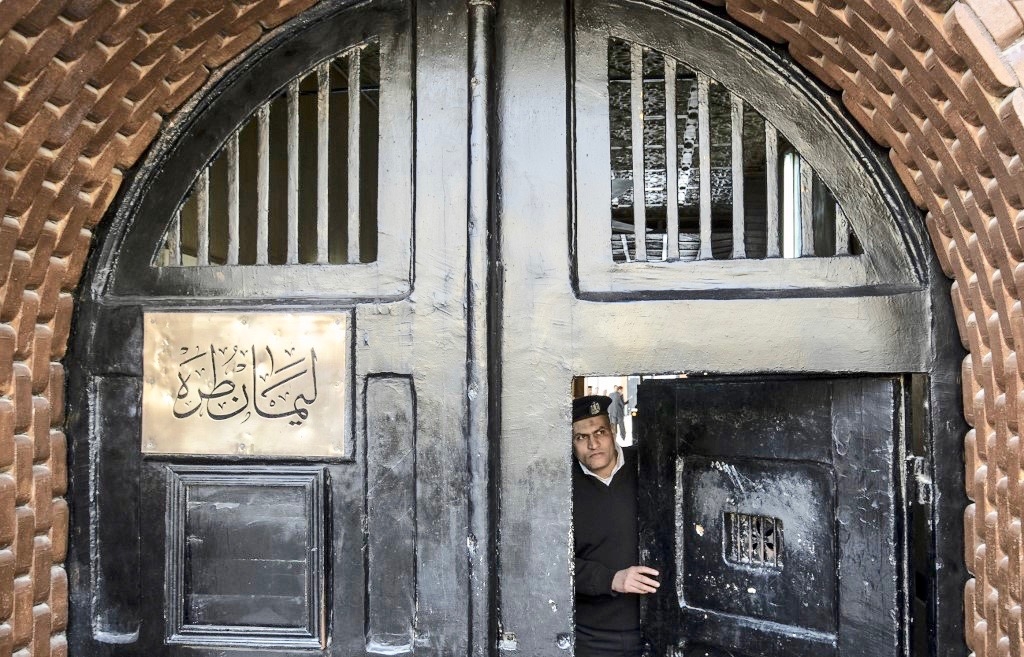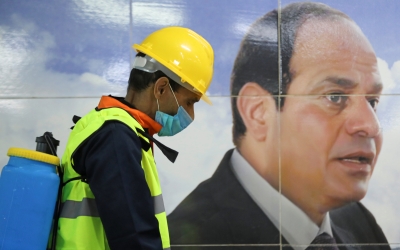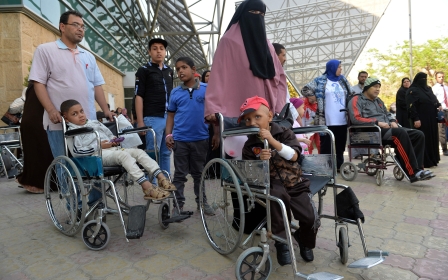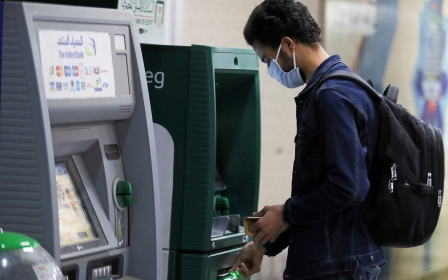Coronavirus: Egypt's jailed doctors smuggle out letter offering pandemic help

Medical staff imprisoned in Egypt have offered to work in their country's hospitals for the duration of the emergency brought on by the coronavirus pandemic, according to a letter smuggled out of an Egyptian prison on Sunday.
Middle East Eye was able to confirm the authenticity of the letter, in which the imprisoned medical personnel also said they would return to their cells afterward.
In the letter, members of the Doctors Syndicate and supporting staff ask “to help our fellow doctors in their work, and we pledge not to demand any material compensation for this work, as well as not to go to our homes; but we will reside in hospitals and in other workplaces or the headquarters of subsidiary unions”.
They add: “We also pledge to return to our places in prisons again after this cloud has passed, and we are ready to provide adequate guarantees to implement this, for the sake of our dear Egypt and its great people.”
Batel, an independent Egyptian campaign, last week called for the release of more than 1,000 imprisoned doctors and healthcare professionals to help in the country's fight against the spread of the coronavirus.
The Batel campaign, which means "void" in Arabic, issued a statement on Wednesday saying that any potential help to the Egyptian health sector in the fight against the viral outbreak must be sought.
"Egypt cannot be suffering from a shortage of medical personnel, while there are more than 1,000 doctors and health-care workers in prisons," the campaign said in the statement.
It also posted the names of more than 100 doctors who had been arrested by Egyptian authorities. Batel estimates there are 300 doctors and as many as 1,000 nurses, pharmacists and other trained staff in Egypt’s jails.
Since President Abdel Fattah el-Sisi seized power from the democratically elected government of Mohamed Morsi in a 2013 coup, his government has jailed more than 60,00 alleged dissidents.
On Friday, the UN human rights chief called on Egypt to release political prisoners and other non-violent offenders in an effort to combat the spread of the virus in overcrowded detention facilities.
Michelle Bachelet's spokesman, Rupert Colville, said in a statement that the world body was deeply concerned for Egypt's prisoners, who are often kept in conditions that are "overcrowded, unsanitary and suffer from a lack of resources".
The UN office also said it was "concerned" about reports that Egypt was moving to "quash criticism on social media" and silence activists focusing on the pandemic.
Egypt on Saturday confirmed five additional deaths and 85 new coronavirus cases, bringing the country’s number of confirmed total cases so far to 1,070. Seventy-one people have died from the virus in Egypt, according to the Egypt Independent website.
But the actual numbers may be higher. MEE reported last month that University of Toronto research suggests the government had been under-reporting cases of the virus and that the true number was probably about 6,000, and potentially as many as 19,000.
The authors of the smuggled letter wished all medical personnel success in the fight against the pandemic and concluded: “May God protect our beloved Egypt from the epidemic and from all evil.”
Middle East Eye delivers independent and unrivalled coverage and analysis of the Middle East, North Africa and beyond. To learn more about republishing this content and the associated fees, please fill out this form. More about MEE can be found here.





